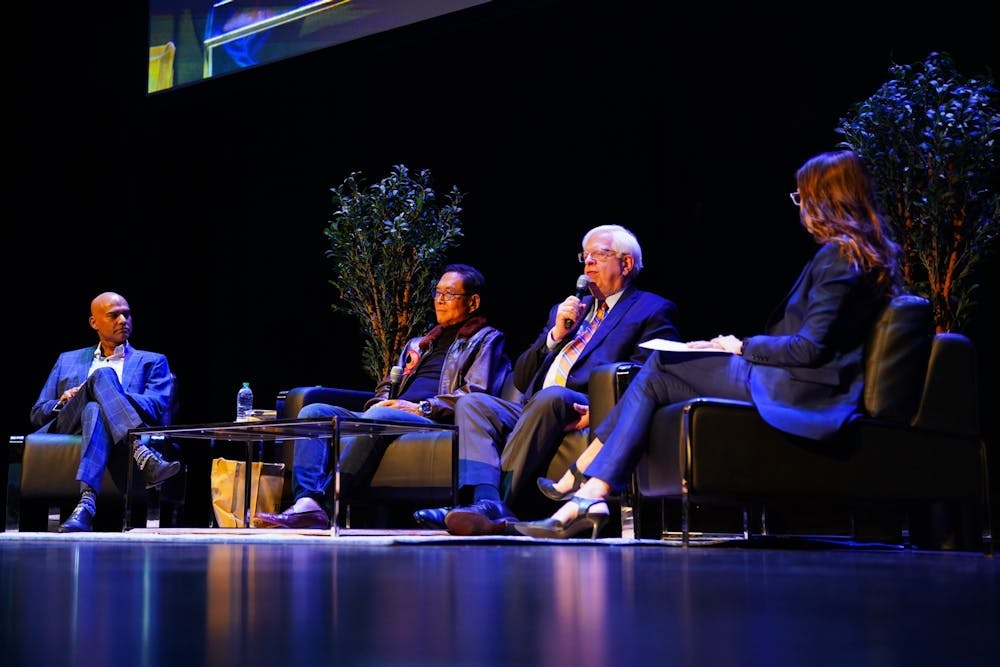Freedom of Speech at Arizona State University

Arizona State University is committed, in practice, not just rhetoric, to all things that support free speech and all its components.
American universities have long been an environment where ideas are shared and tested, beliefs are expressed, and issues are debated. Along with that comes arguments and disagreements over strongly held beliefs. It can be quite noisy and sometimes uncomfortable, but in a free society, universities must be safe places that demonstrate tolerance for civil public discourse.
Arizona State University has been recognized with the “green light” by the Foundation for Individual Rights and Expression and has adopted the Chicago Principles, which affirm the “free, robust and uninhibited sharing of ideas among all members of the university’s community.”
The heart of ASU’s Charter is a commitment to inclusion. That means everybody. ASU adheres to the First Amendment and the only pledge any employee of ASU takes is an oath to the Arizona and United States constitutions.
Several recent stories about ASU’s T.W. Lewis Center within Barrett, the Honors College, failed to live up to the principle of allowing opposing views to be shared and, as such, have told a one-sided story. Mr. Lewis decided to discontinue funding that paid for more than $300,000 per year in salary and benefits costs for the executive director of the now-dissolved center. But the speaker series and classes that were created by the center will continue at ASU, and the faculty who delivered that content through the center will continue to do so.
The Health, Wellness and Happiness event that has drawn so much attention is an event that happened, was well attended and was successful. The controversy surrounding it and the opinions expressed in opposition to it are also examples of free speech. The university environment allowed all to be heard.
Student organizations of many different points of view are empowered and supported in their efforts to learn through engagement. Rather than view these as learning opportunities, it is common for people in the university community and the surrounding community – or political interest groups with no connection to either community – to express opposition. Such events have been hosted both by ASU departments such as ASU’s School of Civic and Economic Thought and Leadership, the Center for Political Thought and Leadership, the School of Historical, Philosophical, and Religious Studies, and by ASU’s numerous and varied student organizations. Recent examples in just the past few years include: conservative lawyer John Eastman, Ashton Blaise Whitty and Tim Gionet (aka, Baked Alaska), Jared Taylor, anti-Islam speaker Carl Goldberg, former Maricopa County Sheriff Joe Arpaio, and Charlie Kirk, in a previous appearance.
The presence of an invited speaker on campus does not in any way imply university endorsement. In fact, because of the university’s commitment to protecting the diverse sharing of ideas, ASU employees must also share a commitment to tolerance and inclusion, as does the United States military.
ASU strongly upholds the rights of all individuals and groups on campus to express their opinions, whatever those opinions may be, as long as they do not violate the student code of conduct, student organization policies, and do not infringe on another student’s individual rights.